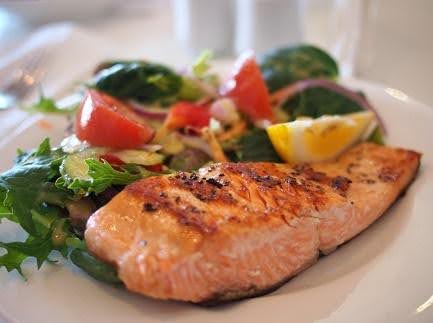
You may have heard the aphorism, “You are what you eat.” Take that a bit further and consider how what you eat has an impact on how you feel as well. There is a treatment modality called nutritional psychiatry which addresses how what we put in our mouths impacts brain and emotional functioning. Studies have indicated that people who eat “a Mediterranean diet and the traditional Japanese diet, to a typical “Western” diet and have shown that the risk of depression is 25% to 35% lower in those who eat a traditional (indigenous) diet.”
This tells us how important it is to eat our veggies, fruits and whole grains, minimal animal protein and to go easy on sugar and processed foods.
Consider how you feel when you are ‘buzzed’ on sugar, which some would call an addictive drug. Your energy level fluctuates, flying high and then crashing. Like any addiction, it is challenging to curtail, and it beckons us to indulge, despite the negative impact.
Cassie Bjork, RD, LD, founder of Healthy Simple Life, states that sugar can be even more addicting than cocaine. “Sugar activates the opiate receptors in our brain and affects the reward center, which leads to compulsive behavior, despite the negative consequences like weight gain, headaches, hormone imbalances, and more.”
If you use food as a drug with which to self-medicate away uncomfortable emotions, it can cause you to put on unhealthy amounts of weight and prevent you from addressing issues that are calling for your attention.
Practicing Mindful Eating for Emotional Awareness
Practice, if you will, for a short amount of time, even for a day or two, to eat only when you are hungry, stop when you are almost full, and ingest your food slowly and mindfully, as you savor each bite. Eat ‘clean’ as you refrain from sugar, processed foods and caffeine. Check in with yourself and inquire how you are feeling after attempting this experiment. You may like the benefits so much that you decide to continue.
According to an article published in Frontiers in Psychiatry, called “What Is the Role of Dietary Inflammation in Severe Mental Illness? A Review of Observational and Experimental Findings,” “Given diet’s role in modulating inflammatory processes, excessive calorie-dense, nutrient-deficient processed food intake may contribute toward the heightened inflammation observed in (severe mental illness).”
Nutrients That Support Mental and Emotional Health
Cortisol, known as a stress hormone, impacts our sleep, brain function and mood. Dietitian Courtney Barth, MS, RDN, LD, CPT, explains how certain foods can help reduce our levels of cortisol. Foods that have high levels of vitamin B can kick cortisol to the curb. These include nutritional yeast, eggs, salmon, green leafy vegetables, milk, organ meats, oysters, clams, and mussels. Food and substances to reduce or avoid in order to reduce inflammation and cortisol include alcohol, caffeine, simple carbs such as cakes and pastries, as well as soda.
One study outlines an Antidepressant Food Scale, which lists 12 antidepressant nutrients related to the prevention and treatment of depression. Some of the foods containing these nutrients are oysters, mussels, salmon, watercress, spinach, romaine lettuce, cauliflower, and strawberries.
Several books that address the importance of healthy eating for improvement of mood and mental functioning include:
- Food & Mood: The Complete Guide to Eating Well and Feeling Your Best by Elizabeth Somer
- Food, Mood, and More: How Food Affects Mood and What You Can Do About It by Kathleen D Zamperini
- The Food Mood Connection by Dr Uma Naidoo
- Eat to Beat Depression and Anxiety: Nourish Your Way to Better Mental Health in Six Weeks by Drew Ramsey M.D.
If you’re struggling with your relationship to food and how it affects your emotional well-being, eating disorder therapy can help you reconnect with nourishment in a healing and balanced way.
